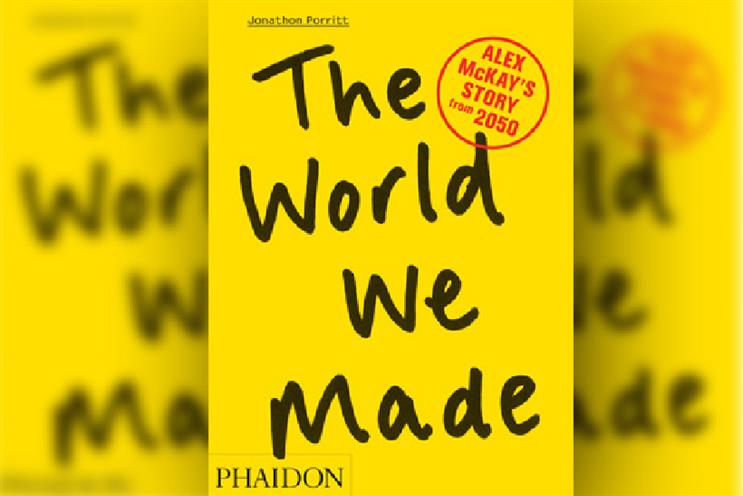
Shut your eyes and think about the world of 2050. Imagine a planet ravaged by natural disasters, epidemics, famines and war.
This is more about the angle of attack than any U-turn
This is the traditional fodder of environmentalists struggling to persuade us to turn the listing ship that is the Earth, as it sails at speed toward the rocks of climate change. Now think of a world that has embraced positive change.
One that has stared into the abyss and rewired itself to create a future for our grandchildren that leaves us envious of their lot. This is the world created in this book.
The fact that someone as steeped in the challenges our planet faces should write such a book is at first glance counterintuitive.
Here is an eminent sustainability activist who has worked on the front line in the battle against climate change for decades and prophesied our doom on numerous occasions. Has the former chair of the Green Party and director of Friends of the Earth changed sides? On the contrary, his commitment to the cause remains unimpeachable.
This is more about the angle of attack than any U-turn. After years of banging on doors with (by his own admission) only modest results, Jonathon Porritt has grasped the carrot and offered a glimpse of what making positive changes might offer.
This book represents a treasure trove of insights. As you would expect from such an established author the book is thoroughly researched. What really marks it out, however, is its ambition.
It looks to weave together environmental, fiscal, societal and cultural shifts to paint a complete picture of life in 2050. It does so through the story of a fictional character, Alex McKay, whom the author uses as a device to plot the journey from the impending doom of the early 21st century to a more enlightened age.
Humans truly shine, he hypothesises, when our backs are against the wall
The book’s premise is based on man’s ability to survive, the two core ingredients of this being his genius and his empathy.
This is refreshing territory for the climate-change debate, which tends to focus more on flaws such as corruption and greed. While this may sound wishful and ungrounded, Porritt is quick to establish that such characteristics are only truly crystallised in the face of real adversity.
In short, there’s no progress without pain – or in this case, no innovation or global communion without famine, drought and epidemics. Humans truly shine, he hypothesises, when our backs are against the wall.
For marketers whose daily bread comes from divining future insights from human perceptions and behaviour, this is an important book.
While you’ll challenge some of the thinking (is solar power really the answer to our long-term energy problems?), Porritt has created a holistic view of what the future offers. Although perhaps not a natural writer of fiction, he is able to create a convincing picture of a world that offers an antidote to the doom-mongers – just as long as we’re prepared to grasp the carrot.
If you only have time for this… six key points from the book.
1 Part history, part personal memoir, Alex McKay’s story charts the key events, technology breakthroughs and lifestyle revolutions that make the world what it is mid-century.
2 At the back of the book, a follow-up section contains ideas and information on how we personally can effect change, with links to relevant organisations, people, initiatives and campaigns.
3 Forget the doom and gloom usually attached to predictions of the planet’s future; this book provides an upbeat outlook – if we play our cards right.
4 You get a detailed look into what the world could look like in 2050.
5 The book is based on extensive factual research, but its ambition is what makes it stand out.
6 Get an insider’s view on the future of climate change and sustainable fishing.



.jpg)
.jpeg)
